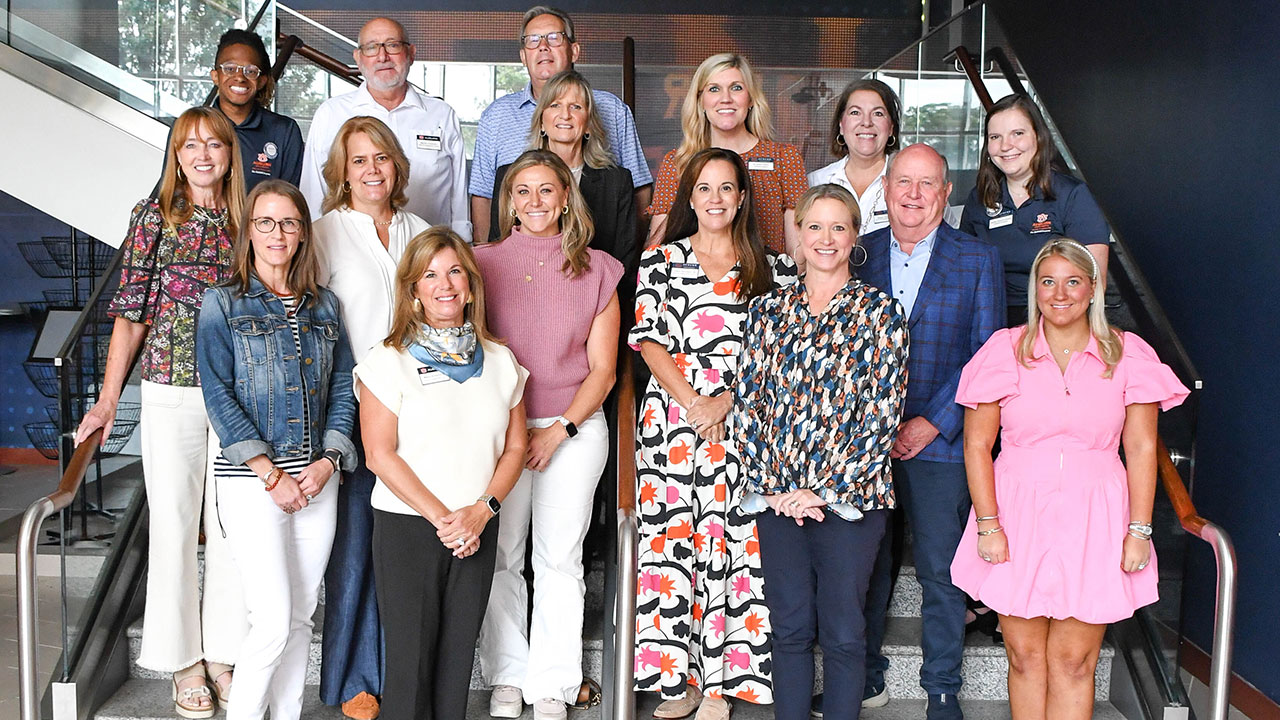content body

With the fall semester well underway on Auburn University’s campus, the College of Education’s EAGLES Engagement Council (EEC) is once again soaring to new heights of advocacy and impact.
As students settle into routines and campus traditions come alive, the EEC begins its 2025–2026 service cycle with renewed energy, fresh faces and a shared commitment to excellence and lifelong connection.
Established to support the Education to Accomplish Growth in Life Experiences for Success (EAGLES) Program, the council serves as a vital link between students, families, alumni and the broader community.
EAGLES is Auburn University’s comprehensive transition program for students with intellectual disabilities. From academics and wellness to independent living and career readiness, the EAGLES Program empowers students to thrive, and the EEC ensures that support for those students is both visible and sustainable.
“Our council members are more than supporters — they’re advocates and champions of possibility,” said Betty Patten, the Jay and Susie Gogue Endowed Director of EAGLES. “They help ensure that every EAGLES student is seen, celebrated and supported — not just during their time at Auburn, but for life.”
The 19-member council reflects a wide cross-section of Auburn alumni, parents and community leaders. Members serve two-year terms and provide their support for emerging program needs and signature events — including the EAGLES’ Red Barn Social, Employer Annual Event and End-of-Year Celebration.
“The EAGLES Engagement Council is built on the core tenets of the EAGLES Program, representing opportunity, dignity and the Auburn spirit lived out loud,” EEC Chair Nick Davis said. “Each of us has seen firsthand how transformative this experience is for students and families. Supporting EAGLES isn’t just a commitment — it’s a privilege.”
Council members also serve on standing committees focused on engagement and recruitment, special events/opportunities and fundraising. Their work helps grow the program’s endowment, expand outreach to underserved communities and create pathways for employment, internships and volunteerism for EAGLES students and alumni.
“This council embodies the values of Auburn University and our College of Education — integrity, respect and a deep belief in the power of education,” College of Education Dean Jeffrey Fairbrother said. “Their impact is felt in the many lives they improve as a result of their dedicated stewardship.”
That impact is also financial. Council members contribute donor funds that make key events possible without passing costs on to families — a reflection of the college’s commitment to responsible stewardship. Program fees are never used for these activities, ensuring that donor support directly enhances the student experience.
“This is one of the most meaningful ways we engage our alumni and friends of the college,” said Molly McNulty, director of Development for the College of Education. “Council members don’t just serve — they invest.”
McNulty also noted that council members have established endowed scholarships within the EAGLES Program and have contributed to named spaces within the college’s facilities. Additionally, council members are dedicated to growing the overall program endowment so that the program can benefit generations to come.
Among the council’s initiatives:
- The Events Committee hosts at least one annual WINGS appreciation event to celebrate peer mentors in the program. Past gatherings have included dinner at the football stadium and a special evening at Auburn Baseball Coach Butch Thompson’s home.
- The Engagement Committee creates outreach packages, distributes future EAGLES shirts and designs classroom posters to promote college as a goal for students.
- Members are helping connect Auburn alumni in other cities to host friendraising and fundraising events, expanding the program’s reach and visibility.
Already this fall, council members have been actively engaged in the program’s Family Welcome Reception and Homecoming weekend festivities. Their presence at the EAGLES Fall Preview Day — an event designed to introduce prospective students and families to the program — underscored their commitment to expanding access and fostering a sense of belonging.
Committees are meeting regularly to plan for the months ahead. With Preview Day, spring programming and the Employer Annual Event on the horizon, the council is poised to make 2025–2026 a year of meaningful progress and lasting impact.




